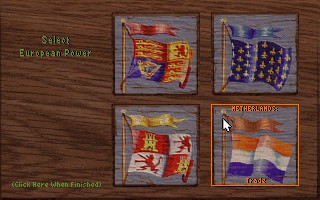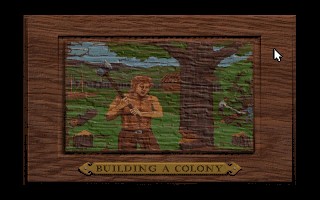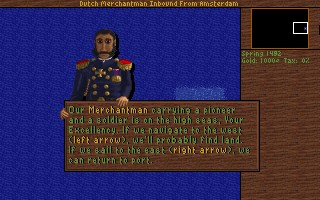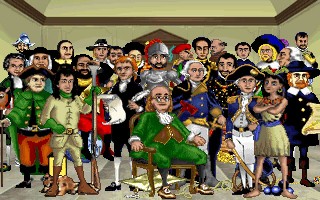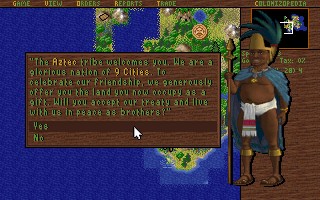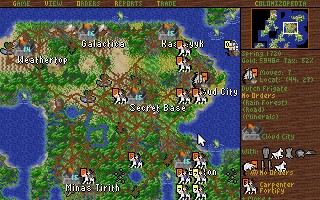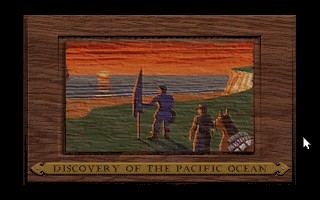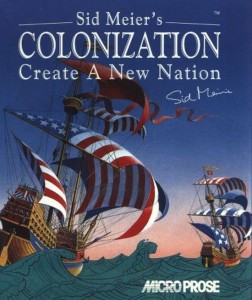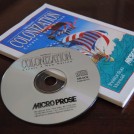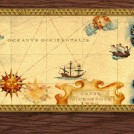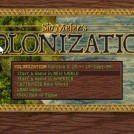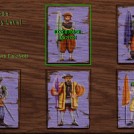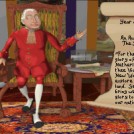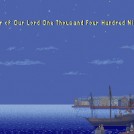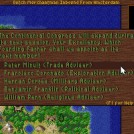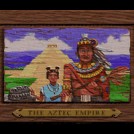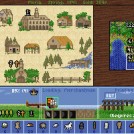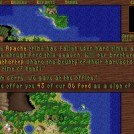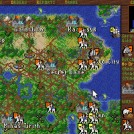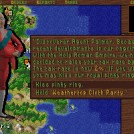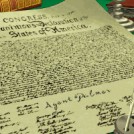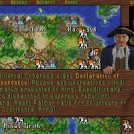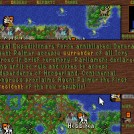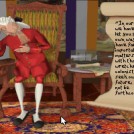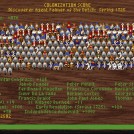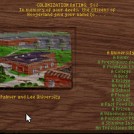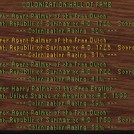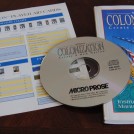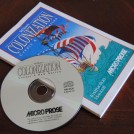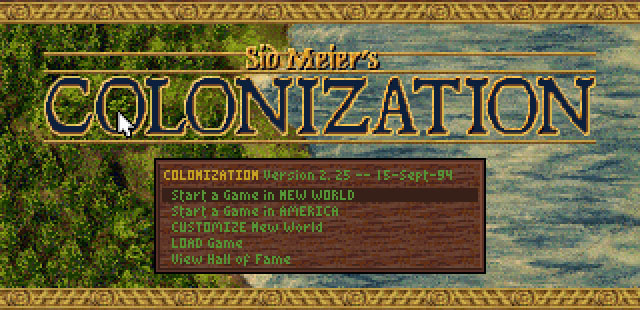
Sid Meier’s Colonization was released in 1994. It was the same turn-based strategy game as it’s predecessor Civilization, but it had a much more detailed visual design. Obviously, these two games are not the same, although they are variations on a theme.
Originally, Colonization was released for DOS, before being ported over to Windows 3.1, the Amiga and Macintosh. It was developed by MicroProse, the same video game developer behind Civilization.
Civilization is about nation building and the race for technological advances, you can go for world domination or you can go for technological supremacy. Colonization puts you in control of one of four nations, crossing the Atlantic in the service of the Crown, before building up colonies and ultimately declaring independence from the motherland in a battle with the mother country’s Royal Expeditionary Force.
You can play as one of four European powers; the Dutch, English, French or Spanish, each with their own starting units and each with various bonuses based upon their historical context.
The Dutch are based upon trading and as such, prices on goods are more stable and you start the game with a merchantman, a soldier and a pioneer. The English have increased cross production allowing for more immigrants to appear at a much quicker rate than the other countries, and start the game with a soldier, a pioneer and a caravel. The French have a reduction in the rate of tension created with the natives and have a better relationship with them and start the game with a soldier and expert pioneer and a caravel. The Spanish get a military bonus against the natives and start out with a veteran soldier, a pioneer and a caravel.
Choosing your country has a lot to do with the strategy you choose to use, in gaining your independence, but all can achieve independence.
Any unit can build a colony, pioneers can build roads and plow the land and expert or “hardy” pioneers can do it faster. Plowed land gives you bonuses for the elements that can be taken from any land square and roads give a +1 bonus to anything that can be taken from a land square, as well. Roads also make it easier to move from town to town by one-third.
Farmers are useful for feeding your colony, as are fisherman, but in order to utilize the fisherman you must build a dock. Building up your colony building by building is much faster with a lumberjack and a carpenter, although any unit can do any job, so use what you have.
There are four ways to build up your population. You can train colonists in Europe for a cost or you can recruit them at a discounted rate. You can wait for them to show up in Europe, waiting to board you ship for the new world, but the rate at which they show up is based upon your cross production, so the need for preachers and churches is helpful. Lastly, you can set up missions with the native population, in their villages, to have converts appear in your new colonies from time to time.
But you can’t simply just take your ship across the ocean and start building, you need a process, wood and ore. You don’t need to have these two resources available, but they help. If you can build your colony or all of your colonies, with access to wood and ore, you can create self sustaining colonies. Wood is converted into hammers to build buildings, ships and artillery. Ore can be converted into tools, which is helpful for building more complex buildings and also because tools can be converted into guns.
Churches can be built to increase your cross production and therefore increase the rate that colonists appear ready to sail to the new world, but you need to get them there. Each of the four nations starts out with a ship, the advantage of the Dutch is that they start with a merchantman, which can carry four people because it has four cargo slots, as opposed to the caravel which has only two. You can choose to buy another ship; a caravel, merchantman, galleon, privateer or frigate from your home country or you can build them, after you have built a shipyard.
The game is easy to play, but a little harder to master. I for example, always build my colonies on cleared and plowed land squares, which takes some time, but allows for greater production. Then there is the production of Liberty Bells and your Continental Congress. Liberty Bell production can be sped up by building and upgrading certain buildings and that production is very important because it helps you build your Continental Congress.
There are 25 potential Founding Fathers, five in each of five categories; trade, exploration, military, political and religious. Each of the potential founding fathers has an effect and is a real historical figure. There are some that are better, depending on your strategy, but there is at least one in each that is extremely helpful, regardless of your nationality and your strategy.
For trade it’s Peter Stuyvesant, who allows for the building of the Custom House, which streamlines your trade with Europe and maintains trade with Europe during the Revolution. For exploration it’s La Salle, who gives all existing and future colonies a stockade, when the population of a colony reaches 3, this saves time and money. For military it’s John Paul Jones who adds a Frigate to your colonial navy when he’s joins your Continental Congress. For political it’s Benjamin Franklin, who makes all European wars have no effect on the New World, meaning that foreign colonies will always offer peace in negotiations. Lastly, for religious it’s William Brewster, who weeds out the criminals and servants, so they will no longer appear on the docks waiting to come to the New World.
Of course, you have to be careful of your surroundings in the New World, you’ll run into native populations and the other foreign nations. For best results, stay to yourself and treat the natives well. It’s really hard to build up your colonies while fighting off native and other foreign powers’ attacks.
Once you have a few functional colonies, it’s time to start building up your army. Armories and stables in full production will allow you to spit out dragoons at an expedited rate. You’ll need that army for declaring independence. Once you do, prepare for war. The war isn’t that hard to win if your army is large enough. From there it’s just hold off the Royal Expeditionary Forces and once they’re all gone, take your independence and win the game.
The game play seems more intuitive than that of the game play in Civilization, but this game was also paired down, so there wasn’t quite as much that could be done. It is turn based and although it is single-player, you get to see the other nations and the natives take their turns after you finish yours, while you wait for your next turn.
The graphics are a little crisper than Civilization, but again, this game was much smaller in scale and scope. In addition, to the fact that graphics and their processors obviously improved from the creation of Civilization to the creation of Colonization.
This game incorporates history and simulation, you can choose to play on Earth or in a New World. You can choose to be the Spanish and pillage your way across the New World, or you can be the Dutch and do the same thing. It’s up to you. How you decide to play and what nation best suits your style is completely your call.
Maybe it was a paired down version of Civilization, but it wasn’t any less complicated. You still needed to build through progressions, similar to that of the technology progressions in Civilization. You still have to do battle with the home nation, deal with native raids on your colonies and perhaps deal with the other nations encroaching on your turf.
This game was and still is highly addictive. It’s easy to get going and it’s even easier to keep going. Is it educational? Marginally, but it does teach you how to manage resources and balance many different colonies, all with various ecosystems. This is not a game for everyone, I know some people found it boring, when it released, I am not one of those people.
I still find the game fun today. And today it’s even easier to get your hands on. It’s available on some of the abandonware sites and an open source version exists called FreeCol, but I still have the CD to install it and a few computers that will run it without the need for DOSBox.
Sid Meier’s Colonization, if it interests you, is great for all ages and for losing track of time (in a fun way), which is what a good game should do. So, in my book Colonization is a good game, in fact, I believe on my personal list it ranks above Civilization, although that’s a classic for many other reasons.
To be honest, I like it so much, I’m going to play it again and again and again, as long as I can keep an old computer around to play it, because as updated as FreeCol is, it still can’t hold a candle to the pure nostalgia high of the original Colonization, which should be considered every bit the classic that Civilization is.
